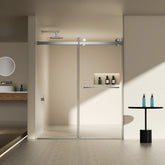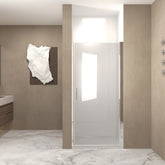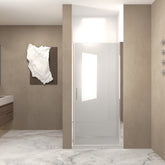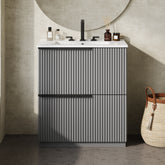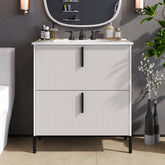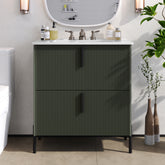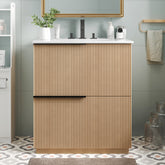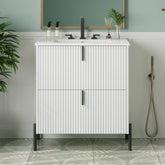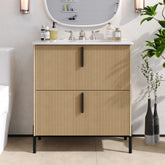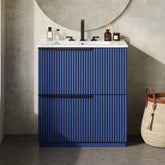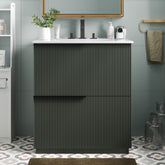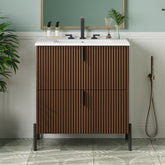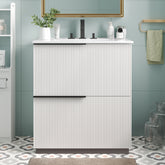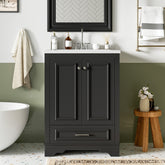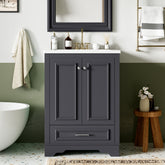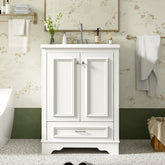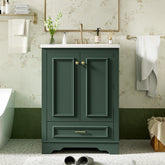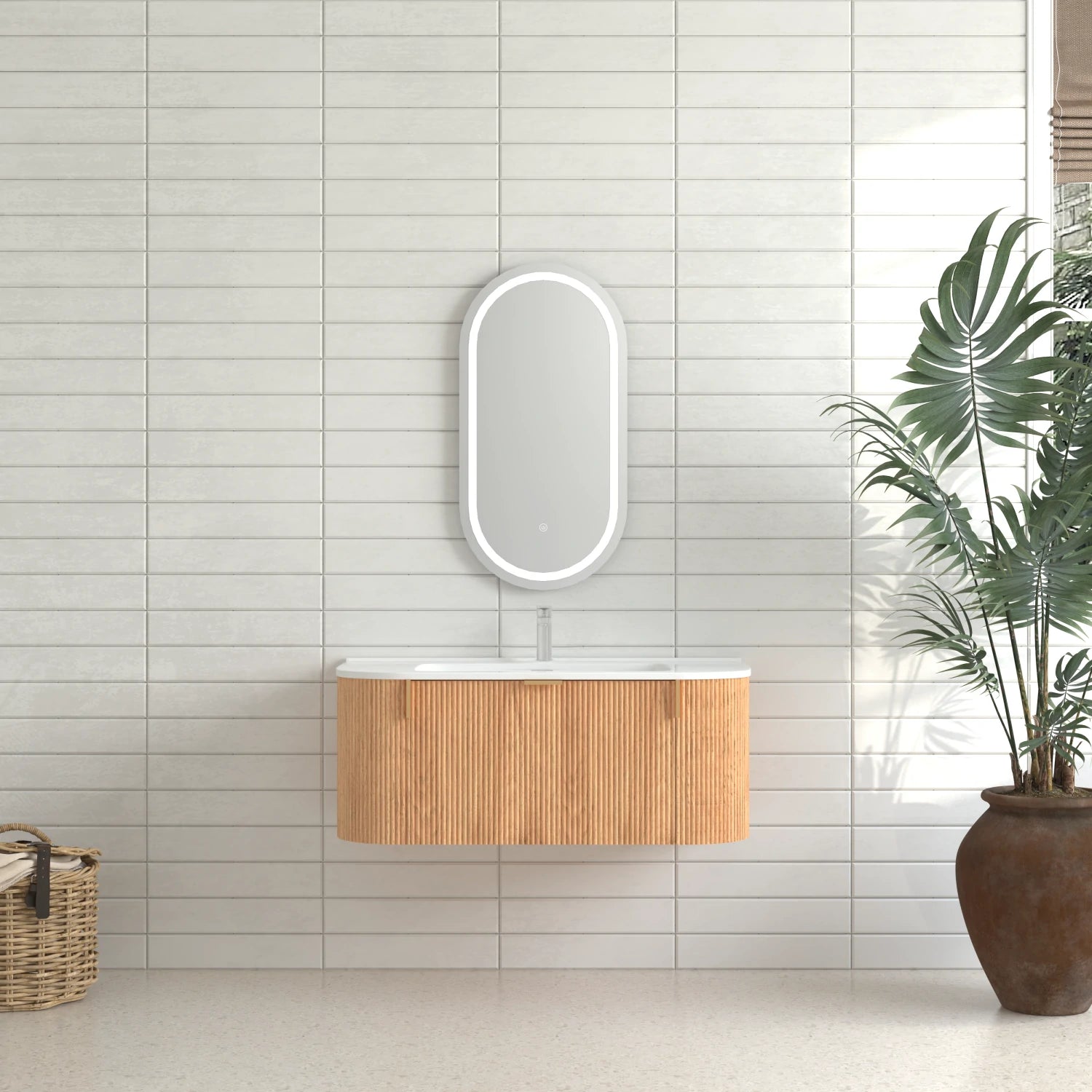The Ultimate Guide to Choosing the Right Shower Door for Your Bathroom
Introduction: Why the Right Shower Door Matters
When I first started planning my bathroom renovation, I underestimated just how much impact a shower door could have on both the functionality and the overall look of the space. It wasn’t just about picking something that looked nice—it was about choosing the right shower door that fit my layout, complemented the design, and made my daily routine smoother.
The Perfect Blend of Functionality and Style
Whether you're working with a compact bathroom or a spacious master suite, the shower door you choose can dramatically change how the room feels and functions. A well-selected door helps keep water where it belongs, simplifies cleaning, and can even make the space appear larger and more modern. From sliding shower doors to frameless glass options, every choice brings its own blend of practicality and visual appeal.
What You’ll Learn in This Guide
In this ultimate guide, I’ll walk you through everything I learned while choosing the best shower door for my bathroom—from measuring your space to understanding the pros and cons of hinged, bypass, and custom shower door options. We'll also dive into glass types, style considerations, installation tips, and mistakes to avoid.
If you’re ready to transform your bathroom with a door that’s both beautiful and functional, this guide is your perfect starting point.
1. Understand Your Bathroom Layout and Space
Before I even started browsing different shower door types, I realized how important it was to get a clear understanding of my bathroom’s layout. Trust me, choosing the right shower door starts with knowing your space inside and out—literally. Without the right measurements or awareness of your room’s limits, even the best-looking door won’t function properly.
Measure Accurately—It’s Non-Negotiable
The first step I took was to carefully measure the shower opening: width, height, and depth. I double-checked everything to avoid costly mistakes later. Depending on the measurements, some options like a hinged shower door or a frameless glass door may or may not work for your setup. Accurate measurements are especially important if you’re considering a custom shower door solution.
Plan for Door Swing or Slide
Space around the shower is just as important as the space inside. I had to ask myself—does the shower door have enough room to open without hitting anything, like a vanity or toilet? Sliding shower doors are ideal for tighter spaces, while pivot doors need clearance to swing open fully. The decision between a swinging or sliding design came down to how much floor space I could spare.
Account for Height, Angles, and Obstacles
Another lesson I learned: don’t ignore your ceiling height or wall angles. Uneven walls or a sloped ceiling can limit the type of glass shower door you can install. Even things like towel racks, light switches, or built-in shelves can become unexpected obstacles if you’re not paying attention to the surrounding layout.
By fully understanding the layout of my bathroom before making any decisions, I was able to narrow down my choices and avoid unnecessary surprises. The layout may not be the most exciting part of this process, but it’s definitely the most essential when choosing the right shower door.
2. Types of Shower Doors
Once I had a clear understanding of my bathroom space, the next step was exploring the different types of shower doors. There are more options out there than I expected, each with its own functionality, aesthetic, and space requirements. Here’s what I discovered while comparing the most popular styles.
Sliding Shower Doors (Bypass)
Sliding or bypass shower doors were one of the first styles I considered. These are perfect for bathrooms with limited space since the doors slide past each other on a track rather than swinging open. I liked that they offer a sleek, modern look and are great for tubs or wide openings. However, they do require regular track cleaning, and access is limited to one side at a time.
Hinged or Pivot Shower Doors
Hinged or pivot doors open outward like a traditional door, which gives a spacious and luxurious feel. These worked well in bathrooms with more open floor space. I found them to be visually appealing, especially when paired with frameless glass, but you need to make sure there’s enough clearance for the door to swing open safely without hitting any fixtures.
Bi-Fold Shower Doors
Bi-fold doors were a surprise find for me. These fold inward, making them ideal for really small bathrooms or tight shower enclosures. They combine the benefits of swinging and sliding doors but might lack the minimalist look some homeowners (like me) are after. They're practical, but the folding mechanism can be a bit more complex to clean and maintain.
Fixed Panel (Walk-In) Shower Doors
If you're into open-concept bathroom designs, a walk-in shower with a fixed panel is a stylish and minimalistic choice. I personally loved the high-end spa-like feel. Just a single pane of glass shower door separates the wet and dry zones. Keep in mind though—it doesn’t provide full water containment, so it's best suited for larger bathrooms with excellent drainage.
Frameless vs. Framed Shower Doors
This was probably the toughest decision I faced. Frameless shower doors offer a modern, clean aesthetic and make the bathroom look bigger. They're usually made with thicker, high-quality tempered glass. On the other hand, framed shower doors are more budget-friendly and stable, thanks to the metal frame support. I found frameless designs easier to clean, but they often come at a higher price point and require professional installation.
Pros and Cons Summary
- Sliding Doors: Space-saving, modern look, but limited access and track maintenance needed.
- Hinged Doors: Wide access, elegant style, but needs floor space for swinging open.
- Bi-Fold Doors: Ideal for tight spaces, flexible access, but more moving parts to clean.
- Fixed Panel: Sleek and open, easy to maintain, but less water containment.
- Frameless: High-end design, easy to clean, but more costly and fragile without frame support.
- Framed: Cost-effective and durable, but can look bulky and be harder to clean around seals.
Understanding these different shower door types helped me weigh practicality against style, and ultimately make a confident, informed decision that worked best for my bathroom's layout and my personal taste.
3. Glass Options & Finishes
After narrowing down the type of shower door I wanted, the next step was choosing the right glass. At first, I thought glass was just... glass. But as I dove deeper, I discovered there’s a lot more to it—both in terms of appearance and performance. The type of glass and its finish can completely change the look and feel of your bathroom, and even how much maintenance it needs.
Clear, Frosted, Tinted, and Patterned Glass
I started with the basics—glass styles. Clear glass is the most popular option because it creates a clean, open look and shows off your tilework. It was my top choice for a modern, minimalist vibe. But if you want more privacy, frosted or patterned glass offers a textured surface that obscures visibility while still letting light through.
Tinted glass was another interesting option I considered. It adds a bit of color—like grey, bronze, or blue—for a unique, stylish finish. Tinted and patterned styles are great if you're going for a more decorative or bold aesthetic.
Glass Thickness and Safety Standards
Choosing the right glass thickness is important for both safety and durability. Most frameless shower doors use 3/8" or 1/2" thick tempered glass, which meets modern safety standards and resists shattering. If you're opting for a framed shower door, the glass can be slightly thinner since the frame provides structural support. I went with thicker glass for a solid, luxury feel.
Low-Iron Glass for Maximum Clarity
One thing I didn’t know before this project was the impact of iron content on glass clarity. Standard clear glass actually has a slight greenish tint due to iron. If you want truly crystal-clear panels, especially for a high-end frameless glass shower door, low-iron glass is the way to go. It’s a bit pricier, but the visual difference is stunning—my tiles looked brighter and colors more accurate.
Easy-Clean and Anti-Lime Coatings
Here’s a feature I’m so glad I didn’t skip: easy-clean glass coatings. These hydrophobic coatings help repel water, soap scum, and mineral build-up. I live in an area with hard water, so this was a game-changer. It keeps the glass looking clean longer and reduces the need for constant scrubbing. Anti-lime coatings are especially helpful if you're going with frameless shower doors, since every smudge shows on those sleek panels.
Ultimately, choosing the right glass shower door finish came down to balancing style, privacy, and maintenance. I ended up with clear, low-iron, easy-clean glass—and I couldn’t be happier with how it elevated the entire bathroom.
4. Style and Aesthetics
Once I had the technical details figured out—like space, door type, and glass—I finally got to the fun part: style and aesthetics. For me, the right shower door wasn't just about functionality. It also had to look amazing and complement the rest of my bathroom design. Here’s what I considered when choosing a door that would truly elevate my space.
Blending with Bathroom Style
My bathroom already had a specific vibe—clean, bright, and leaning toward a modern minimalist look. So I wanted a frameless glass shower door that would maintain that sense of openness and simplicity. If you have a more traditional space, framed doors or those with decorative patterns might suit better. Rustic bathrooms pair well with oil-rubbed bronze finishes, while a sleek urban style works great with black-framed doors or walk-in glass panels.
Choosing the Right Hardware Finishes
The small details—like hinges, handles, and brackets—can make a big difference. I had to decide between chrome, matte black, brushed nickel, and even gold tones. I went with matte black hardware to match my faucet and mirror frame, which tied everything together beautifully. Don’t underestimate these finishes—they’re key to creating a cohesive look in your space.
Impact on Space Perception
One of the things I love most about my frameless shower door is how it makes my bathroom look bigger than it really is. Clear glass creates the illusion of more space, especially in smaller bathrooms. Doors with heavy frames or dark tints can visually close off the area, so I stayed away from those. If you're going for a spa-like retreat, nothing beats the airy feel of a frameless, clear glass shower enclosure.
In the end, I realized that the style of your shower door isn’t just about taste—it’s about how the entire room feels. The right design can turn a functional feature into a centerpiece that enhances the entire bathroom experience.
5. Functionality and Daily Use
When I started searching for the perfect shower door, I knew it had to look good—but more importantly, it had to work well in my day-to-day routine. A beautiful design means nothing if it’s a hassle to use, clean, or maintain. Here’s what I learned about choosing a door that’s not only stylish but also practical for everyday life.
Accessibility and Ease of Entry
One of the first things I considered was how easy it would be to get in and out of the shower. For my space, a sliding shower door worked best because it didn’t swing out into the room, which saved space and kept things convenient. If you have more clearance, a hinged or pivot shower door can offer a wider opening and a more luxurious feel. For families with kids or older adults, accessibility is key—so think about the handle height, door width, and whether it’s easy to grip and operate.
Cleaning and Maintenance Considerations
I’ll be honest—one of my biggest concerns was how much time I’d spend keeping my glass shower door clean. That’s why I opted for easy-clean coatings that help repel water spots and soap scum. Frameless doors are great for a sleek look, but they also mean more visible glass, so if you’re not a fan of daily squeegeeing, go with a coating that minimizes buildup. Also, fewer metal frames mean fewer crevices for mold and mildew to hide, which is a big plus in my book.
Water Containment and Splash Prevention
There’s nothing more annoying than a puddle on the bathroom floor after a shower. I had to make sure the door I chose sealed properly to keep water in. Frameless shower doors usually rely on precise installation and small seals to prevent splashing, so getting it professionally installed was worth it. If water control is a top priority, framed or semi-frameless doors tend to offer better protection with overlapping panels and built-in channels.
At the end of the day, I needed a shower door that not only looked great but also made my daily routine smoother and more enjoyable. Choosing one with the right features for accessibility, maintenance, and water control was the best decision I made for my bathroom remodel.
6. Budget and Installation Considerations
As excited as I was to upgrade my bathroom, I knew I had to keep a close eye on my budget. Choosing the right shower door isn’t just about looks or features—it also comes down to cost, installation complexity, and long-term support. Here’s how I approached this part of the process to make sure I got great value without sacrificing quality.
Price Range for Different Shower Door Types
The price of a glass shower door can vary widely depending on the type. Framed shower doors are generally more budget-friendly, often starting at a couple hundred dollars. On the other hand, frameless shower doors come with a higher price tag due to their thicker glass and minimal hardware, but they offer a modern, open look that I personally love. Sliding and bi-fold doors fall somewhere in between, so I had to balance design preference with cost.
Custom vs. Standard Options
I debated whether to go with a custom design or stick with a standard-sized model. Custom shower doors are ideal if your bathroom has unique dimensions or if you’re aiming for a very specific aesthetic. But custom work can get expensive quickly. In my case, I found a standard frameless model that fit my space perfectly with just minor adjustments—saving both time and money.
DIY vs. Professional Installation
At first, I considered installing the shower door myself to save on labor costs. But after doing some research (and watching a few videos), I realized the precision required for a frameless model wasn’t something I wanted to gamble with. Misalignment could lead to leaks, or worse, glass damage. In the end, I hired a professional installer and it was worth every penny for peace of mind and a flawless finish.
Warranty and After-Sales Service
One thing I almost overlooked was the shower door warranty. Some manufacturers offer limited coverage on the glass and hardware, while others provide extended protection or even lifetime warranties. I made sure to check the warranty details and look for brands with solid customer support in case I ever run into issues. After-sales service may not seem like a big deal at first, but trust me—it matters.
Budgeting for a shower door installation doesn’t have to be overwhelming. By understanding the costs, comparing standard vs. custom options, and choosing the right installer, I was able to stick to my budget while still getting a beautiful and functional upgrade.
7. Mistakes to Avoid
Looking back on my bathroom renovation, I realize how easy it is to make small missteps when choosing a shower door—and those missteps can lead to big regrets. To save you from learning the hard way, here are a few mistakes I nearly made (and some I thankfully avoided) during the process of selecting and installing my glass shower door.
Ignoring Accurate Measurements
This might sound obvious, but I can’t stress it enough: measure everything—twice. At first, I assumed my shower opening was standard, but a quick check revealed it was slightly uneven. If I hadn’t taken exact measurements of the width, height, and even wall angles, my new frameless shower door wouldn’t have fit properly. Always measure carefully, and when in doubt, get a professional to do it.
Choosing the Wrong Opening Mechanism
I was initially drawn to a stunning pivot shower door, but after visualizing the door swinging open in my small bathroom, I realized it would be completely impractical. Depending on your layout, a sliding shower door might save space and prevent obstruction. Don’t get carried away by style alone—think about how the door will function in your specific space day-to-day.
Overlooking Cleaning Difficulty
I’ve learned that not all glass shower doors are created equal when it comes to maintenance. At one point, I almost chose a textured glass design that looked amazing—but would have been a nightmare to clean. Smooth surfaces with anti-lime or easy-clean coatings are a lifesaver, especially if you have hard water or a busy lifestyle. Don’t forget to consider how much time you’re willing to spend on upkeep.
Picking Style Over Practicality
We all want our bathrooms to look great—but I realized I couldn’t let style totally overshadow functionality. That ultra-modern frameless shower door I liked didn’t provide enough splash protection for my setup. I had to compromise slightly on design to make sure I wouldn’t end up with water all over the floor. In the end, I found a sleek option that looked great and actually worked for my space.
Making the right choice for your shower door involves more than just scrolling through inspiration photos. Learn from my experience: take your time, measure carefully, and balance aesthetics with functionality to avoid costly and frustrating mistakes down the line.
8. Choosing the Right Manufacturer or Supplier
After deciding on the style, type, and features of my shower door, I realized that the next big decision was equally important—finding a trustworthy shower door manufacturer or supplier. With so many options out there, I wanted to make sure I was choosing someone who offered quality products, great service, and long-term reliability. Here's what I looked for (and what I recommend you consider too):
Reputation and Reviews
I started by researching online reviews and asking for recommendations from friends and contractors. A supplier’s reputation says a lot. I paid attention to what past customers said about product quality, installation ease, and post-sale service. Whether it was a frameless shower door or a sliding model, I wanted to work with a company known for durability and consistency.
Customization Options
My bathroom layout wasn’t standard, so finding a shower door supplier that offered custom sizing and hardware finishes made all the difference. Some manufacturers only carry off-the-shelf products, which can limit your design choices. I looked for flexibility in glass types, handle styles, and even the thickness of the glass. That level of customization helped me achieve a design that truly matched my space.
Delivery Times and Return Policy
Timing was critical for my renovation schedule. I asked each potential glass shower door supplier about their lead times and whether they had items in stock. Some custom options can take weeks—or even months—to arrive. I also made sure I understood the return policy, just in case anything arrived damaged or didn’t fit. Transparent policies gave me confidence in my purchase.
Support and Customer Service
During my search, I quickly learned that not all companies offer the same level of customer support. One shower door manufacturer stood out by answering my questions quickly, helping me double-check my measurements, and providing installation tips. That kind of support made me feel valued as a customer. Whether you're buying one door or outfitting multiple bathrooms, responsive service makes a huge difference.
In the end, choosing the right manufacturer wasn’t just about getting a door—it was about peace of mind. From reviews and customization to delivery and service, finding a supplier who truly supports your vision is the final step toward a smooth and satisfying shower door upgrade.

Conclusion
Bringing It All Together
After going through my own process of choosing the perfect shower door, I’ve come to appreciate just how many factors come into play. From measuring the space correctly and choosing between a sliding shower door or a hinged glass shower door, to selecting finishes and working with a reputable shower door supplier—every decision counts. The right choice doesn’t just improve your bathroom’s function; it transforms the overall look and feel.
Style Meets Function
What I’ve learned is that you don’t have to sacrifice beauty for practicality. Whether you're leaning toward a sleek frameless shower door for a modern look or a framed option for a more classic feel, there’s a solution that fits both your design preferences and your daily lifestyle needs. It’s all about finding the perfect balance between style and function.
Take the Next Step
If you’re ready to upgrade your bathroom, I encourage you to explore trusted shower door manufacturers or consult with a professional to help guide you. With the right support and a bit of planning, you can find a glass shower door that fits your vision and stands the test of time. Don’t rush—do your homework, ask the right questions, and enjoy the process. A better shower experience is just one decision away.
Featured Products
AISU 30" Fluted Design Freestanding Bathroom Vanity with Ceramic Sink, Gray
- $398.96
- $398.96
- Unit price
- / per
AISU 30" Ultra Fluted Design Freestanding Bathroom Vanity with Ceramic Sink, With Leg, White
- $343.58
- $343.58
- Unit price
- / per
AISU 30" Fluted Design Freestanding Bathroom Vanity with Ceramic Sink, White
- $398.96
- $398.96
- Unit price
- / per
AISU 30" Ultra Fluted Design Freestanding Bathroom Vanity with Ceramic Sink, With Leg, Green
- $343.58
- $343.58
- Unit price
- / per
AISU 30" Fluted Design Freestanding Bathroom Vanity with Ceramic Sink, Wood
- $456.70
- $456.70
- Unit price
- / per
AISU 30" Fluted Design Freestanding Bathroom Vanity with Ceramic Sink, With Leg, White
- $328.44
- $328.44
- Unit price
- / per
AISU 30" Ultra Fluted Design Freestanding Bathroom Vanity with Ceramic Sink, With Leg, Wood
- $357.58
- $357.58
- Unit price
- / per
AISU 30" Fluted Design Freestanding Bathroom Vanity with Ceramic Sink, Blue
- $398.96
- $398.96
- Unit price
- / per
AISU 30" Ultra Fluted Design Freestanding Bathroom Vanity with Ceramic Sink, Green
- $442.70
- $442.70
- Unit price
- / per
AISU 30" Fluted Design Freestanding Bathroom Vanity with Ceramic Sink, With Leg, Dark Brown
- $328.44
- $328.44
- Unit price
- / per
AISU 30" Ultra Fluted Design Freestanding Bathroom Vanity with Ceramic Sink, White
- $442.70
- $442.70
- Unit price
- / per
AISU 24" Modern Freestanding Bathroom Vanity with Ceramic Sink, Black
- $330.50
- $330.50
- Unit price
- / per
AISU 24" Modern Freestanding Bathroom Vanity with Ceramic Sink, Dark Grey
- $330.50
- $330.50
- Unit price
- / per
AISU 24" Modern Freestanding Bathroom Vanity with Ceramic Sink, White
- $330.50
- $330.50
- Unit price
- / per
AISU 24" Modern Freestanding Bathroom Vanity with Ceramic Sink, Green
- $330.50
- $330.50
- Unit price
- / per
